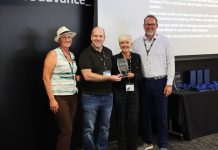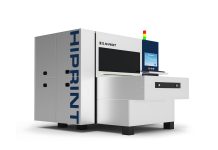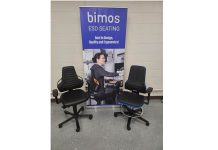Electronics manufacturers at DESY (Deutsches Elektronen-Synchrotron), a research center for fundamental scientific research, are utilizing the GRS550 flying prober from Polar Instruments to ensure the quality of their complex assemblies. DESY manufactures specific assemblies for various research projects, including the extremely sensitive detector electronics used in the IceCube neutrino telescope located deep within the Antarctic ice. These detectors track down elusive elementary particles from space, aiding scientists in their quest to understand the universe. The GRS550 flying prober plays a vital role in guaranteeing the functionality of these intricate assemblies.
The GRS550 builds upon the well-established GRS500 model previously used by DESY to test small series with low quantities as well as prototype PCBs and to perform fault diagnostics on complex assemblies. It offers enhanced features such as faster travel speeds and improved positioning accuracy. The GRS500 will remain in service as a backup system.
Optimized test procedures
“DESY’s production batches typically range from twenty to fifty assemblies,” explains Julia Müller, Group Leader of Electronics Production at DESY. “However, the IceCube project requires around three thousand components on over four hundred complex assemblies. The GRS550’s extensive testing capabilities using CAD data and fault diagnosis technologies are essential for such projects. Additionally, no competitor offered a comparable combination of cost-effectiveness and performance.”
Both the GRS500 and GRS550 are ideal for diagnosing faults in assemblies where traditional in-circuit testing is not cost-effective. The flying prober’s testing method compares a known-good assembly with the assembly under test using nodal impedance analysis and high-resolution imaging. This approach effectively detects component presence, misplacement, short circuits, opens, and faulty solder joints without requiring in-depth knowledge of the assembly’s functionality from the operator. Creating a test program typically takes an average of 2-4 hours, depending on the assembly size.
Efficient access to layout data
Polar Instruments’ import filters enable a wide range of CAD data to be imported into the GRS550 test system. The system’s repair software supports over twenty different CAD formats for programming and identifying faulty networks. “The GRS550 allows us to conduct tests at the nodal level and directly load specific data, circuit diagrams, and assembly documents from the layout program,” emphasizes Reischer, Managing Director of Polar Instruments GmbH. “This significantly simplifies test procedures and programming.”
The GRS550 test system will soon be upgraded to an even more powerful software platform, further enhancing its already impressive test capabilities. “We are planning additional functionalities based on advanced optical image evaluation, such as active testing to verify assembly function directly on the flying prober,” explains Reischer.
Emerging regulations like the right to repair present new opportunities for the Polar Flying Prober. “Since future regulations mandate technical repairability of devices, flying prober test systems can significantly contribute to pinpointing faulty components,” says Reischer. “This extends the life cycle of complex and expensive assemblies, promoting resource conservation.”
Polar Instruments is proud to support DESY’s vital research endeavors with their innovative testing solutions.
About Polar Instruments GmbH
Polar Instruments GmbH is a leading provider of software and test systems for bare board manufacturing and PCB assembly. Their product portfolio encompasses manual and automatic test systems for fault detection on assembled PCBs, impedance, conductor loss, signal integrity, PCB reliability, and software for transmission line simulation and stackup documentation. For more information, visit: www.polarinstruments.eu










